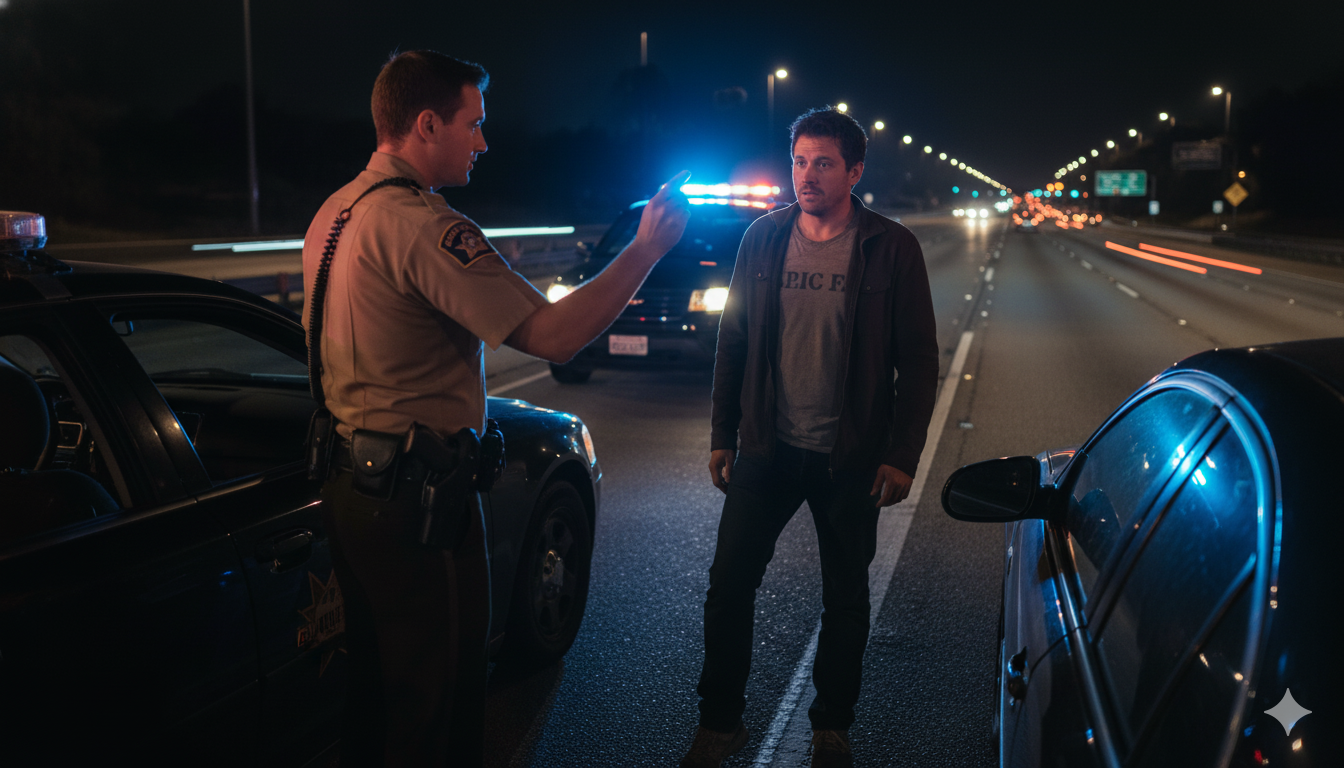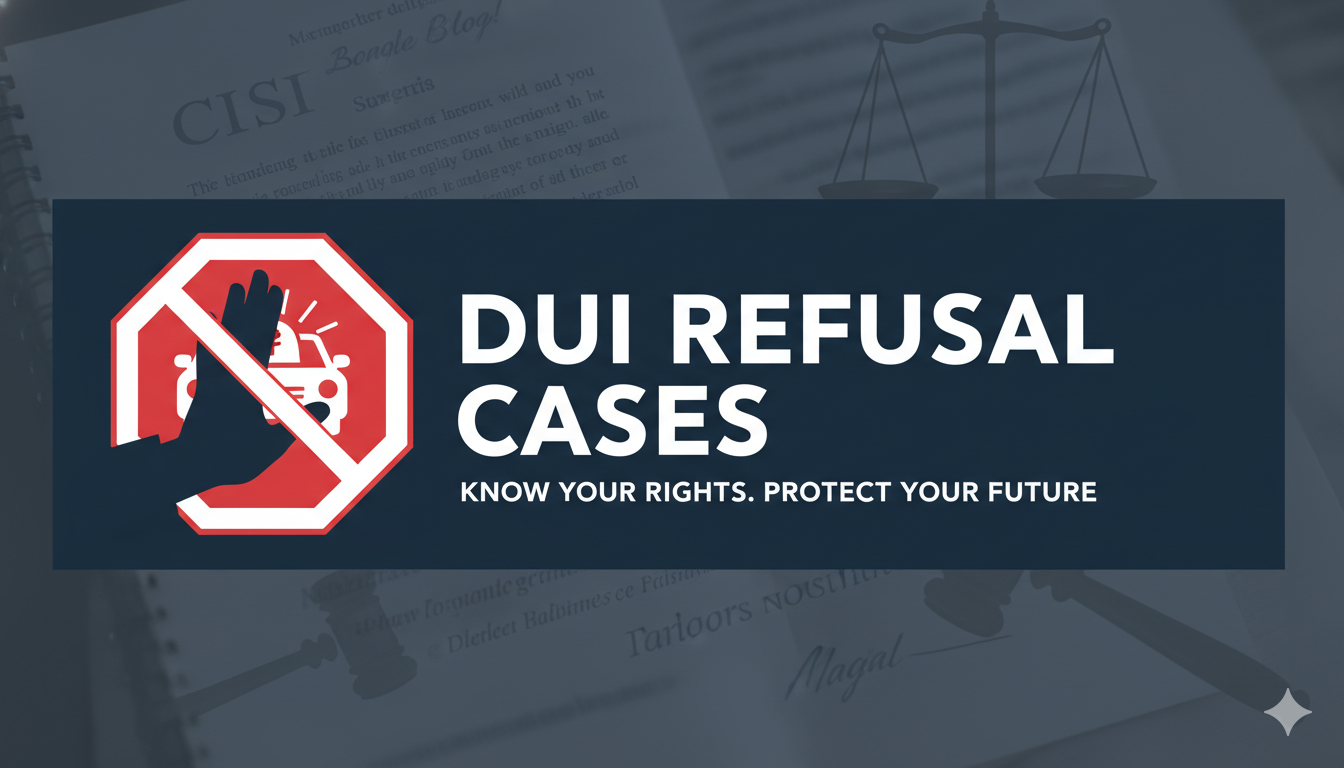When your child is facing juvenile charges in Santa Barbara, it can feel like their future is on the line—but there’s hope, and there are options to protect them. Whether your child is dealing with juvenile delinquency petitions for theft or shoplifting at State Street stores, assault or battery charges from school fights at Santa Barbara high schools, drug possession allegations, vandalism or graffiti charges, underage DUI or alcohol offenses, juvenile sex offense allegations, probation violations, weapons possession on school grounds, or facing potential transfer to adult court for serious felonies, understanding California’s juvenile justice system and the protections available for minors is the first step toward protecting your child’s future and ensuring they get the help and second chances they deserve rather than permanent criminal records.
At Central Coast Criminal Defense, we’ve helped Santa Barbara families defend against juvenile charges and protect children’s futures since 2010. We know the Santa Barbara County Juvenile Court, the juvenile probation system, and—most importantly—we know how to fight for results that protect what matters most: your child’s freedom, their education at Santa Barbara schools including San Marcos High School, Dos Pueblos High School, and Santa Barbara High School, their college prospects, and their ability to move forward without juvenile adjudications following them into adulthood.
What Is the Juvenile Justice System in California?
California’s juvenile justice system operates under Welfare and Institutions Code rather than Penal Code, focusing on rehabilitation rather than punishment. When minors (persons under age 18) commit crimes in California, they’re typically processed through juvenile court rather than adult criminal court. Instead of being “convicted of crimes,” juveniles are found to have committed offenses through “sustained petitions” in juvenile delinquency proceedings. Juvenile court proceedings are confidential—not public like adult court—to protect minors’ privacy and futures. Juveniles adjudicated delinquent are placed on juvenile probation supervised by Santa Barbara County Probation Department rather than sentenced to jail or prison, though serious offenders can be committed to Division of Juvenile Justice (formerly California Youth Authority) facilities. What makes juvenile proceedings fundamentally different from adult court is the focus on rehabilitation, education, and family involvement rather than punishment—judges consider minors’ ages, maturity, family circumstances, school performance, and potential for rehabilitation when making decisions. Additionally, juvenile records can be sealed under Welfare & Institutions Code 781 when minors turn 18 or complete probation satisfactorily, providing fresh starts without juvenile adjudications following them into adulthood affecting college applications, employment, or professional licenses. However, certain serious offenses can result in transfer to adult court under Welfare & Institutions Code 707 where minors face adult criminal prosecution with potential prison sentences, strike convictions, and permanent criminal records—making aggressive defense critical when transfer is threatened.
In Santa Barbara and throughout Santa Barbara County, juvenile delinquency cases are heard at Santa Barbara County Juvenile Court where judges handle delinquency petitions, probation violations, and transfer hearings. Common juvenile offenses in Santa Barbara include shoplifting and theft from State Street retailers and Paseo Nuevo, fights and assaults at Santa Barbara high schools including San Marcos, Dos Pueblos, and Santa Barbara High School, vandalism and graffiti throughout Santa Barbara neighborhoods, drug possession and sales particularly marijuana and prescription medications, underage drinking and alcohol offenses at parties and beaches, joyriding and vehicle theft, burglary and trespassing, weapons possession on school grounds, and cyberbullying, sexting, or online offenses. The Santa Barbara County Probation Department investigates juvenile cases, prepares social study reports for judges, supervises minors on juvenile probation, and makes recommendations about appropriate dispositions ranging from informal probation to out-of-home placement. The Santa Barbara County District Attorney’s Office prosecutes juvenile cases through specialized prosecutors in the Juvenile Division who decide whether to file delinquency petitions, what charges to pursue, and whether to seek transfer to adult court for serious offenses.
What many Santa Barbara parents don’t understand about juvenile cases is that these proceedings offer significant advantages over adult court including confidential proceedings protecting privacy, focus on rehabilitation not punishment, access to diversion programs that result in case dismissals without adjudications, opportunities for informal probation avoiding formal adjudications, sealed records at age 18 or upon satisfactory probation completion providing fresh starts, and dispositions focused on counseling, education, and family services rather than incarceration. However, juvenile court also poses unique challenges including lower burden of proof in some proceedings, limited jury trial rights, informal procedures that can disadvantage unrepresented minors, and potential for transfer to adult court for serious felonies where minors face adult prosecution, prison sentences, strike convictions, and permanent criminal records. Without aggressive representation that pursues diversion programs and informal probation avoiding adjudications, challenges transfer to adult court when prosecutors seek adult prosecution, presents evidence of rehabilitation potential and family support, negotiates probation terms that don’t disrupt education at Santa Barbara schools, and seeks record sealing to protect futures, your child risks adjudications that affect college applications and scholarships, involvement with juvenile probation disrupting family life and education, and in worst cases transfer to adult court destroying any chance of redemption through the rehabilitative juvenile system.
- Legal Definition: Juvenile delinquency proceedings under California Welfare & Institutions Code involve minors under 18 who commit crimes, processed through juvenile court with focus on rehabilitation not punishment, resulting in sustained petitions (not convictions), juvenile probation (not jail sentences), confidential proceedings, and sealed records at age 18 or probation completion—though serious offenses can result in transfer to adult court under WIC 707 for adult prosecution with prison and permanent records.
- Why It’s Different: Juvenile system focuses on rehabilitation through counseling, education, family services, and probation rather than punishment through incarceration, offers confidential proceedings protecting privacy, provides diversion and informal probation avoiding adjudications, seals records at 18 providing fresh starts, and emphasizes minors’ potential for change—but serious cases can be transferred to adult court where minors face adult prosecution, prison, strikes, and permanent criminal records.
- Common Santa Barbara Juvenile Cases: Shoplifting from State Street retailers and Paseo Nuevo, fights and assaults at San Marcos, Dos Pueblos, and Santa Barbara High School, vandalism and graffiti in neighborhoods, drug possession and sales, underage drinking at parties and beaches, joyriding and vehicle theft, burglary and trespassing, weapons on school grounds, and cyberbullying or sexting offenses.
Important: Juvenile proceedings are confidential and focus on rehabilitation. Most cases can be resolved through diversion or informal probation avoiding adjudications. Call +1 (805) 621-7181 immediately if your child is arrested or facing charges—early intervention protects their future.
Juvenile Charges We Defend in Santa Barbara
We defend minors against all juvenile charges in Santa Barbara, Santa Barbara County Juvenile Court, and adult court when transfer occurs. Here are the cases we handle:
Property Crimes
- Juvenile Shoplifting / Petty Theft
Theft from State Street stores, Paseo Nuevo, or retailers | Approach: Diversion programs, restitution, community service avoiding adjudication - Juvenile Burglary
Entering buildings, vehicles, or structures with intent to commit theft | Serious offense: Can result in transfer to adult court, requires aggressive defense - Vandalism / Graffiti
Damaging property or tagging throughout Santa Barbara | Approach: Restitution, community service, graffiti removal programs - Joyriding / Vehicle Theft
Unauthorized taking or driving of vehicles | Consideration: Distinguish joyriding from theft, family car situations - Receiving Stolen Property
Possessing property knowing it was stolen | Defense: Lack of knowledge, purchased legitimately
Violent Offenses
- Juvenile Assault and Battery
Fights at Santa Barbara schools or neighborhoods | Approach: Self-defense, mutual combat, anger management programs - School Fights
Altercations at San Marcos, Dos Pueblos, Santa Barbara High School | School consequences: Suspension or expulsion in addition to juvenile court - Juvenile Robbery
Taking property from person through force or fear | Serious offense: Strike allegation possible, transfer risk - Criminal Threats
Threatening violence causing sustained fear | Context: School threats, social media posts, cyberbullying
Drug and Alcohol Offenses
- Juvenile Drug Possession
Marijuana, prescription medications, or controlled substances | Approach: Drug diversion programs, counseling, education avoiding adjudication - Drug Sales or Possession for Sale
Selling drugs at schools or to peers | Serious offense: Can result in commitment to juvenile facilities - Underage Drinking / Minor in Possession
Alcohol possession or consumption by minors | Common at Santa Barbara parties and beaches, administrative license suspension - Underage DUI
Driving under influence of alcohol or drugs under age 21 | Consequences: Criminal charges plus DMV license suspension, zero tolerance .01% BAC
School-Related Offenses
- Weapons on School Grounds
Possessing weapons at Santa Barbara schools | Serious offense: Mandatory expulsion, possible felony charges - School Threats / Bomb Threats
Threatening violence at schools | Zero tolerance: Serious consequences even for perceived jokes - Cyberbullying
Online harassment or bullying of students | Modern issue: Social media threats, harassment campaigns - Truancy / Status Offenses
Chronic absence from school without valid reasons | Non-criminal: Handled through SARB process before juvenile court
Sex-Related Offenses
- Juvenile Sex Offenses
Sexual assault or inappropriate contact allegations | Devastating: Can require sex offender registration, transfer to adult court possible - Sexting / Child Pornography
Sending or possessing sexually explicit images of minors | Serious consequences: Federal charges possible, sex offender registration - Statutory Rape
Consensual sexual activity with age-inappropriate partners | Context matters: Romeo and Juliet situations vs. exploitation
Serious Offenses and Transfer Cases
- WIC 707(b) Transfer to Adult Court
Serious felonies including murder, rape, robbery with firearm | Critical: Fight transfer to keep case in juvenile court, adult court means prison and strikes - Gang-Related Offenses
Crimes committed for benefit of criminal street gangs | Enhanced consequences: Gang allegations increase severity - Weapons Violations
Firearm possession or use by minors | Serious consequences: Enhanced charges, possible transfer
Probation Violations and Other Matters
- Juvenile Probation Violations – Failing to comply with probation terms
- Contempt of Court – Violating court orders or failing to appear
- Curfew Violations – Violating court-ordered curfews
- Runaway / Incorrigibility – Status offenses involving family conflict
- Record Sealing (WIC 781) – Sealing juvenile records at age 18
- Automatic Record Sealing – Ensuring records sealed when eligible
Your child facing juvenile charges? Juvenile court focuses on rehabilitation and offers diversion avoiding adjudications. Early intervention is critical. Call +1 (805) 621-7181 immediately to protect your child’s future.
What’s at Stake: Consequences of Juvenile Adjudications
While juvenile system is more lenient than adult court, adjudications still carry serious consequences:
Immediate Consequences
- Juvenile probation supervision by Santa Barbara County Probation Department with strict conditions
- Commitment to juvenile facilities or camps for serious offenses
- School suspension or expulsion from Santa Barbara schools affecting education
- Mandatory counseling, anger management, or drug treatment programs
- Restitution to victims for damages or stolen property
- Community service hours and probation fees
- Curfews, search conditions, and electronic monitoring
Long-Term Impact
- College application barriers as some universities ask about juvenile adjudications
- Scholarship disqualification for certain programs requiring clean records
- Military service barriers as armed forces consider juvenile records
- Professional license impacts for certain fields including teaching and healthcare
- Immigration consequences for non-citizen minors with serious adjudications
- Transfer to adult court risking prison, strikes, and permanent criminal records
- Family disruption from probation supervision and out-of-home placement
⚠️ Your child’s future is at stake. Juvenile court offers diversion and rehabilitation—but serious cases can transfer to adult court. Early intervention is critical. Call now for immediate help.
Why Hiring an Attorney for Juvenile Cases Is Essential
Diversion Programs Avoid Adjudications and Protect Futures
California’s juvenile system offers various diversion programs that allow minors to complete counseling, community service, and rehabilitation without formal adjudications—resulting in case dismissals without juvenile records. We’ve helped hundreds of Santa Barbara minors qualify for diversion by negotiating with Santa Barbara County Probation Department and prosecutors for informal probation under WIC 654.2 allowing dismissal after completing requirements, securing participation in teen court programs where peer juries determine consequences, obtaining placement in restorative justice programs focusing on victim accountability and restitution, connecting families with community-based programs including counseling, drug treatment, and anger management, and demonstrating that diversion serves rehabilitation better than formal adjudication. For first-time offenders charged with minor offenses including shoplifting from State Street stores, marijuana possession, vandalism, or school fights, diversion programs provide opportunities to address behavior through accountability and services without formal involvement in juvenile justice system—avoiding adjudications that appear on records affecting college applications, scholarships, and futures. Many Santa Barbara families don’t know diversion exists or how to qualify—without attorneys pursuing these alternatives aggressively, minors are unnecessarily adjudicated when diversion would better serve rehabilitation goals.
Fighting Transfer to Adult Court Is Critical
For serious felonies listed under WIC 707(b) including murder, rape, robbery with firearm, kidnapping, and certain violent crimes, prosecutors can seek transfer to adult criminal court where minors face adult prosecution with potential prison sentences, strike convictions under Three Strikes law, and permanent criminal records following them forever. We fight transfer motions aggressively by presenting evidence at fitness hearings showing minors’ amenability to rehabilitation through juvenile system, demonstrating strong family support and community ties in Santa Barbara, presenting psychological evaluations showing capacity for change and rehabilitation, showing minors’ immaturity and developmental stage making juvenile services appropriate, and proving dangers to public safety don’t require adult prosecution when juvenile commitment provides adequate protection and treatment. Transfer to adult court destroys any chance of redemption through rehabilitative juvenile system—once transferred, minors face same prosecution, sentencing, and consequences as adults including years or decades in adult prison, strike convictions doubling future sentences, and permanent criminal records visible on all background checks destroying college, employment, and professional opportunities. Successfully defeating transfer motions keeps cases in juvenile court where rehabilitation focus, confidential proceedings, sealed records, and dispositional alternatives provide hope for futures rather than warehousing children in adult prisons.
Protecting Education and Minimizing School Consequences
Juvenile cases often trigger school discipline including suspension or expulsion that can derail education at San Marcos High School, Dos Pueblos High School, Santa Barbara High School, or other Santa Barbara schools. We work to minimize school consequences by coordinating with school administrators and district officials to explain circumstances and advocate for alternatives to expulsion, negotiating agreements allowing continued education through alternative programs when expulsion is unavoidable, ensuring minors receive proper special education services and accommodations when learning disabilities or emotional disturbances contributed to behavior, challenging improper school discipline procedures or violations of education code, and presenting evidence at expulsion hearings showing rehabilitation and why continued education serves best interests. Many Santa Barbara students facing juvenile charges also face expulsion hearings—without advocacy addressing both juvenile court and school proceedings, minors lose educational opportunities that are critical to rehabilitation and futures, falling behind academically and socially in ways that increase recidivism risk and limit college and career prospects.
Local Experience Makes the Difference
Juvenile cases in Santa Barbara County Juvenile Court require understanding how judges evaluate amenability to rehabilitation and make dispositional decisions, which diversion programs and community services are available through Santa Barbara County Probation Department, how Santa Barbara County prosecutors handle juvenile cases and when they agree to diversion versus formal petitions, what evidence resonates with judges when seeking probation rather than commitment, and how to coordinate with Santa Barbara schools including San Marcos, Dos Pueblos, and Santa Barbara High School on discipline matters. We’ve defended hundreds of juvenile cases in Santa Barbara, know the juvenile court judges and their philosophies on rehabilitation, understand Santa Barbara County Probation Department’s programs and officers who supervise minors, have relationships with prosecutors in Juvenile Division who handle these cases, can connect families with community-based services and treatment programs in Santa Barbara, and know how to present cases effectively to judges emphasizing family support, rehabilitation potential, and why minors deserve second chances. We also understand unique dynamics of Santa Barbara including UCSB influence on teen culture, beach and party environments where underage drinking occurs, State Street and Paseo Nuevo as common shoplifting sites, and gang presence in certain areas affecting some juvenile cases.
How Central Coast Criminal Defense Defends Juvenile Cases
Since 2010, we’ve defended Santa Barbara minors and protected their futures with a proven approach:
- Immediate Family Consultation and Case Assessment
We meet with parents and minors immediately after arrests or petitions filed to explain juvenile court process and rights, assess charges and potential consequences including transfer risk, identify diversion opportunities and informal probation possibilities, evaluate family support and community ties supporting rehabilitation arguments, determine whether adjudication can be avoided through diversion or dismissal, and develop strategy protecting minor’s future while addressing accountability for behavior. - Pursuing Diversion and Informal Probation
We immediately pursue diversion programs by negotiating with Santa Barbara County Probation Department for informal probation under WIC 654.2 avoiding formal petitions and adjudications, securing participation in teen court, restorative justice, or community-based programs, connecting families with counseling, drug treatment, or anger management services satisfying accountability goals, demonstrating first-time offender status and minor nature of offenses warranting second chances, and obtaining dismissals after successful completion of diversion requirements preserving clean records. - Fighting Transfer to Adult Court
For serious offenses where prosecutors seek transfer under WIC 707(b) we prepare comprehensive fitness hearings presenting psychological evaluations showing amenability to rehabilitation, demonstrating family support and community ties in Santa Barbara, showing immaturity and developmental factors making juvenile services appropriate, presenting evidence that juvenile commitment provides adequate public safety protection, and arguing that transfer to adult court destroys rehabilitation potential and condemns minors to adult prison and permanent criminal records. - Challenging Evidence and Seeking Dismissals
We challenge juvenile petitions by filing motions to suppress evidence obtained through illegal searches or interrogations, contesting identification when witnesses misidentified minors, demonstrating insufficient evidence to sustain petitions beyond reasonable doubt, presenting alibi evidence and witnesses showing minors weren’t involved, challenging confessions obtained through coercive interrogation of juveniles without parents present, and seeking dismissals when evidence is weak or constitutional violations occurred. - Dispositional Advocacy
When petitions are sustained we advocate for minimal consequences by presenting family support and rehabilitation evidence to judges, demonstrating minors’ remorse, accountability, and commitment to change, proposing detailed probation plans with counseling, treatment, and services addressing underlying issues, arguing for probation at home rather than out-of-home placement or commitment, negotiating probation terms that don’t disrupt education at Santa Barbara schools, and seeking the least restrictive dispositions consistent with rehabilitation and public safety. - School Discipline Coordination
We coordinate with Santa Barbara schools to minimize educational disruption by advocating to school administrators against expulsion when possible, negotiating alternative education placements when expulsion is unavoidable, ensuring special education services and accommodations are provided, challenging improper discipline procedures violating education code, representing families at expulsion hearings presenting rehabilitation evidence, and working to keep minors enrolled in San Marcos, Dos Pueblos, Santa Barbara High School, or other schools whenever possible. - Probation Compliance Monitoring
For minors placed on juvenile probation we monitor compliance with all terms and conditions, ensure families understand requirements and have resources to comply, address violations promptly before they escalate to formal violation proceedings, advocate with probation officers for reasonable accommodations and modifications, and work toward early termination of probation when minors demonstrate rehabilitation. - Record Sealing
We pursue record sealing under WIC 781 when minors turn 18 or complete probation satisfactorily, ensure automatic sealing occurs for eligible records, file petitions to seal records that don’t automatically seal, obtain court orders sealing all juvenile records providing fresh starts, and advise families on how sealed records affect college applications, employment, and professional licenses.
Our juvenile defense practice is built on successfully protecting Santa Barbara minors’ futures. We’ve obtained diversion for hundreds of first-time offenders avoiding adjudications for shoplifting, drug possession, vandalism, and minor offenses, secured informal probation resulting in dismissals without formal juvenile court involvement, defeated transfer motions keeping serious cases in juvenile court avoiding adult prosecution and prison, won dismissals by challenging evidence and demonstrating insufficient proof, negotiated probation at home avoiding commitment to juvenile facilities, minimized school consequences allowing continued education at Santa Barbara schools, obtained early probation termination for minors who demonstrated rehabilitation, sealed juvenile records at age 18 providing fresh starts for college and careers, and helped countless Santa Barbara families navigate juvenile justice system protecting children while ensuring accountability. We understand that most minors facing juvenile charges in Santa Barbara are good kids who made mistakes—shoplifting from State Street stores, getting in fights at school, experimenting with marijuana or alcohol, or engaging in other adolescent misbehavior that doesn’t define who they are or predict their futures—and we fight to ensure one mistake doesn’t destroy educational opportunities, college prospects, or life chances when rehabilitation, diversion, and second chances better serve everyone’s interests.
When your child’s future is at stake, you need more than just legal representation—you need an advocate who knows Santa Barbara County Juvenile Court and understands how to protect children while ensuring accountability. That’s exactly what you get with Central Coast Criminal Defense.
Get Your Free Consultation Today
Don’t wait to protect your child’s future. Juvenile court offers opportunities for diversion and rehabilitation—but you need to act quickly. Call now.
Call +1 (805) 621-7181 now or contact us online to schedule your free consultation. We’re here to help your family through this difficult time and protect your child’s future.












